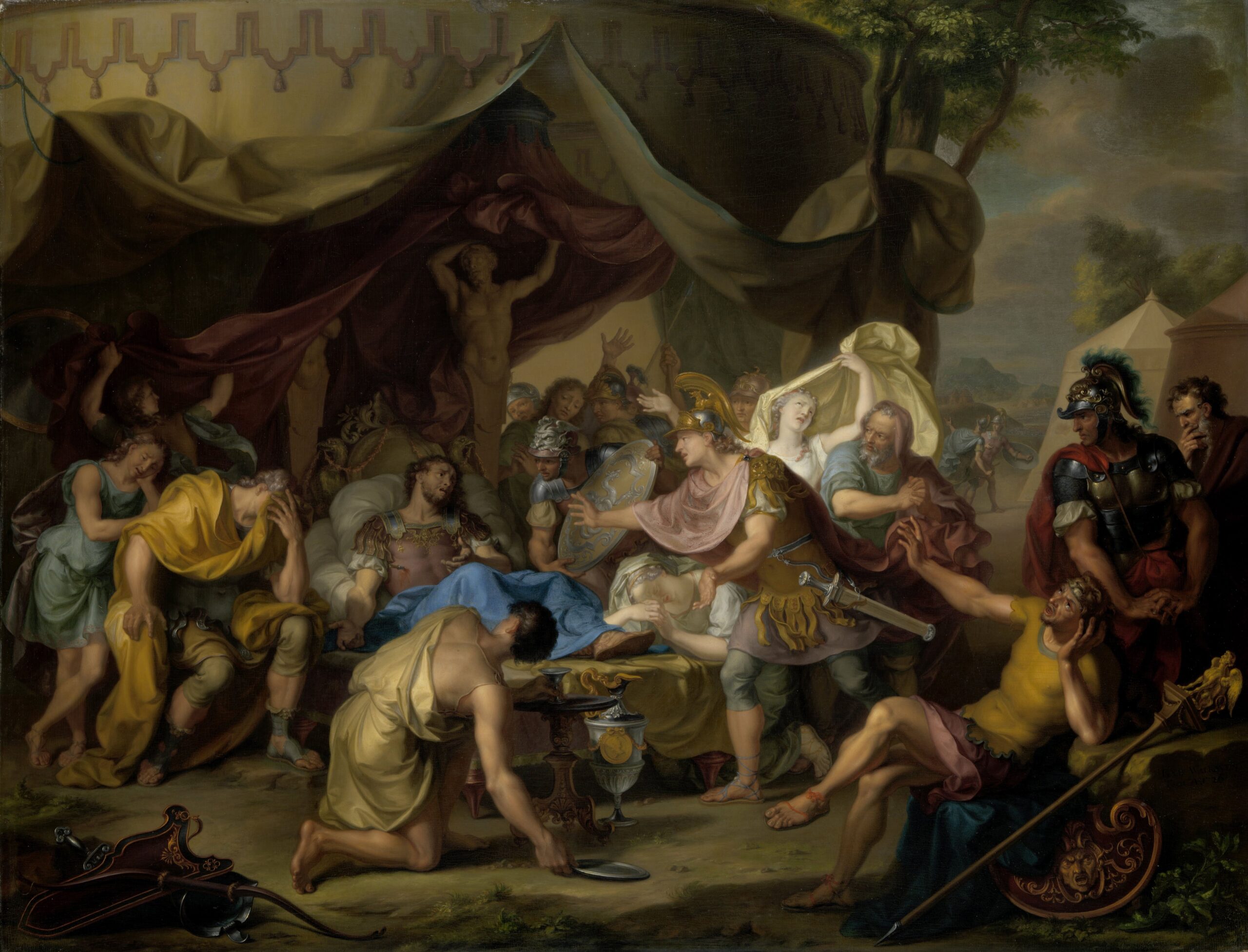Raising money from their allies and hiring mercenaries to intimidate all resistance, the Spartans systematically disciplined and punished the cities that dared resist, seizing Thebes in 382 B.C. and breaking their promise to respect the autonomy of the Greek cities. A group of Theban democratic exiles conspired to overthrow the pro-Spartan regime there, and when the Spartans tried to punish them, a new war broke out in which Athens participated as the leading power in a new anti-Spartan league of many Greek cities.
By 371 the beleaguered Spartans were ready for peace, willing to guarantee independence to all Greek states and seeking disarmament. But the wording of the treaty gave Persia and Athens the leading roles as guarantors, and Epaminondas, the chief Theban delegate, refused to sign. Soon afterward he defeated the Spartans at the battle of Leuctra. Epaminondas followed up his successes with two invasions of the Peloponnesus, helped form a league of Arcadian cities, and assisted the freed helots in founding a city of their own. This destroyed Spartan power in its own homeland.
Warfare continued despite the effort of the Persians to dictate a general peace, as the Athenians returned to their former imperialist practices and installed colonies of Athenian settlers on the soil of conquered cities. The Thebans fought in the Peloponnesus, in the north, against Athens at sea, and finally in the Peloponnesus again, where an alliance of Sparta, Athens, and other poleis met them in battle at Mantinea in 362, at which Epaminondas was killed. All hope that Thebes could put an end to the interminable fighting among Greeks died with him.
A new Peloponnesian league of city-states was formed in 362 B.C. Though ineffective, the league was an important effort to create something like a united states of Greece. Without its restraints, Thebes was defeated in a war against the city of Phocis, whose general had seized the shrine of Delphi and used the accumulated funds there to create a large army of mercenaries in 354. Athens strove to reconstruct its old Aegean empire, but in 357 many of its most important outposts rebelled, and Athens was forced to grant them freedom in 355. Athens was exhausted and broke.
Ironically enough, the inability of the Greek cities to give up fighting was almost surely due in part to general prosperity. Whereas during the fifth century only Athens and Sparta had been able to afford large armies and navies, during the fourth century many other cities grew rich enough to support such forces. Brisk Mediterranean commerce brought wealth to the distant Greek settlements from the Crimea to Spain; not only goods flowed, but also slaves and mercenary troops. Shortly after mid-century the Persians alone had perhaps fifty thousand Greek troops fighting in their armies.
Many devices to make international trade easier first made their appearance in Greece: banking and credit, insurance, trade treaties, and special diplomatic and other privileges. Private wealth grew rapidly and was more widely distributed. Slaves increased in number. By 338 B.C. there may have been as many as one hundred fifty thousand in Attica, working in the mines and at other more skilled occupations.
All this prosperity meant that states quickly recovered from defeat in war and could afford to try again. However, the poor who were not slaves grew poorer; unwilling to degrade themselves by engaging in the manual labor that was increasingly the work of slaves, they often became vagrants or mercenary soldiers. A rigid class society was increasingly confining, and the middle class was losing its sense of security between the increasingly rich and the increasingly enslaved poor.

